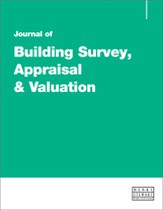The role and significance of experts in court proceedings
Abstract
In housing disrepair cases, expert evidence plays a pivotal role in establishing the extent and impact of property defects on tenants’ health, safety and quality of life. Experts, typically surveyors or environmental health professionals, provide independent technical assessments of the condition of a property and the likely causes of disrepair. Their reports are crucial in determining liability, guiding remedial actions and informing the court or tribunal on matters outside the general knowledge of laypersons. The significance of expert involvement lies in their ability to objectively quantify damage, evaluate compliance with housing standards and correlate disrepair with consequential harm such as damp-related illnesses or structural safety risks. In cases involving claims for damages or specific performance, expert reports often form the evidential foundation for successful outcomes. Moreover, courts increasingly rely on the clarity and impartiality of expert opinions to resolve disputes efficiently, especially where allegations are contested. The Civil Procedure Rules underscore the duty of experts to the court over the instructing party, ensuring their findings are not biased. Their involvement also aids in pre-litigation resolution, as robust expert evidence can prompt early settlements and avoid unnecessary litigation. In sum, experts are instrumental in bridging the gap between technical housing issues and legal accountability, providing objective insight that supports fair and informed adjudication. Their contributions ensure that disrepair cases are resolved not only on legal principles but with an accurate understanding of conditions affecting tenants’ well-being.
The full article is available to subscribers to the journal.
Author's Biography
Chetna Parmar practises in all aspects of housing law, landlord and tenant law and property law. Chetna conducts a comprehensive range of cases with particular emphasis on housing-related matters and public law aspects of housing law. In this regard her practice comprises all areas of housing law including possession claims, injunctions, antisocial behaviour orders, housing disrepair, unlawful eviction, housing benefit appeals, homelessness cases, local government prosecutions, local government prohibition order appeals, local government licensing appeals, as well as various other local government issues. Chetna undertakes work for local authorities, housing associations, other public sector landlords, private landlords and has experience and expertise in representing tenants. She has an established practice in public inquiries arising out of compulsory purchase orders. She also specialises in judicial review and has considerable experience in relation to housing and non-housing-related judicial review claims. Additionally, she has considerable experience in dealing with commercial cases including property-related disputes and contract disputes.
Citation
Parmar, Chetna (2025, September 1). The role and significance of experts in court proceedings. In the Journal of Building Survey, Appraisal & Valuation, Volume 14, Issue 2. https://doi.org/10.69554/UQUG2375.Publications LLP
